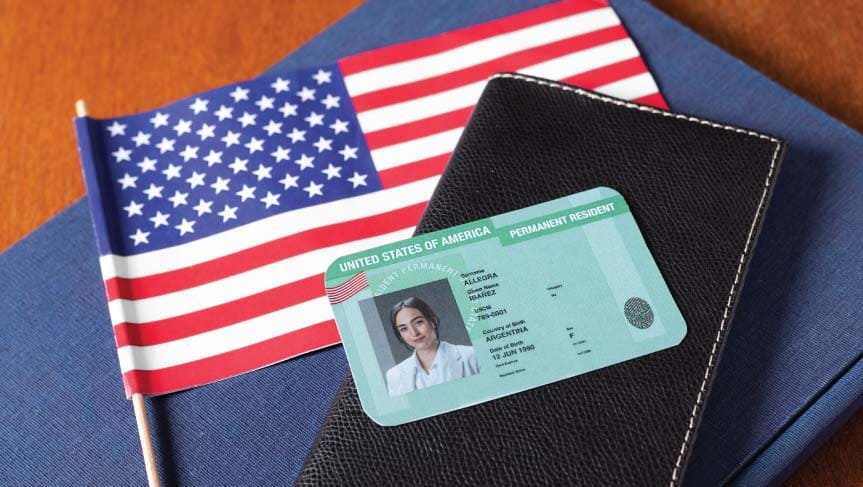Navigating the U.S. immigration system requires patience and precision, and the Green Card Medical Exam is one of the most critical steps. This exam is mandatory for individuals seeking lawful permanent residence (a Green Card) through Adjustment of Status (Form I-485) or Consular Processing. It is not a general health check, but a specialized screening designed to determine if an applicant is inadmissible to the U.S. on specific public health-related grounds.
This detailed guide breaks down every stage, required document, cost factor, and submission rule to ensure your process is smooth and your Form I-693 is accepted by USCIS.
Comprehensive Checklist: What to Bring to Your Appointment
Proper preparation is the single biggest factor in avoiding delays and follow-up visits. Gather these items meticulously:
Identity & History
- Valid Government-Issued Photo Identification: Typically, your valid passport.
- Vaccination Records: All certified immunization records. If they are in a foreign language, you must provide a certified English translation.
- Required Fee: The payment for the exam (fees are due at the time of service).
- Current Medications List: A detailed list of all current prescriptions, dosages, and the conditions they treat.
- Specific Medical Documentation:
Tuberculosis (TB) History: If you have ever had a positive TB skin test (TST), bring a certificate from your doctor proving you were adequately treated.
Syphilis History: If you have been treated for syphilis, bring a certificate of clearance signed by a doctor or public health official.
- Mental Health/Substance Abuse History: Bring written certification (diagnosis, length of treatment, and prognosis) if you have a history of treatment or hospitalization for psychiatric/mental illness or drug/alcohol abuse.
The Four Stages of the Medical Examination
The exam focuses strictly on the four grounds of medical inadmissibility set by the CDC (Centers for Disease Control and Prevention): communicable diseases, failure to meet vaccination requirements, certain physical or mental disorders associated with harmful behavior, and drug abuse or addiction.
Stage 1: The Review and Physical Exam
- Medical History Interview: The surgeon reviews your entire health history, focusing on past hospitalizations, chronic physical/mental conditions, and any serious disabilities.
- Physical Examination: A basic physical check of the eyes, ears, nose, throat, extremities, heart, lungs, abdomen, lymph nodes, and skin.
- Mental Status Examination: This assessment checks for intelligence, mood, behavior, and judgment. The doctor screens for current or past mental/physical disorders that are associated with, or likely to lead to, harmful behavior to yourself or others.
Stage 2: Communicable Disease Screening (Lab Work)
The Civil Surgeon will order blood tests and skin tests to check for specific diseases of public health significance:
- Tuberculosis (TB): You will be given either a Tuberculin Skin Test (TST) or an IGRA blood test. If this screening is positive (meaning past exposure), you will be required to have a Chest X-ray to rule out active TB disease.
- Sexually Transmitted Infections (STIs): A blood test will be required to screen for Syphilis and you will be screened for Gonorrhea. Children are typically excused from X-rays and blood tests.
Stage 3: Drug and Alcohol Screening
This involves a review of your history to determine if you are currently or were previously a drug abuser or addict. While a current addiction is a Class A condition (inadmissible), evidence that drug abuse is in remission may be grounds for admissibility. Any history of rehabilitation or therapy will be noted.
Stage 4: Vaccination Requirements
The doctor ensures you meet all age-appropriate immunization standards set by the CDC.
- Requirements: You must receive the following required vaccinations unless you can provide certified records or are medically inappropriate: MMR (Measles, Mumps, Rubella), Polio, Tetanus and Diphtheria Toxoids (Td or Tdap), Pertussis, Hib, Hepatitis A, Hepatitis B, Varicella (Chickenpox), Pneumococcal, Rotavirus, and Meningococcal.
Influenza (Flu): The Flu vaccine is only required during the U.S. official flu season (typically October 1st through March 31st).
Financial and Logistical Considerations
The Cost Factor
- No Fixed Fee: Neither USCIS nor the CDC regulates the fees charged by Civil Surgeons. Costs for the core exam typically range from $200 to over $700.
- Separate Charges: The Civil Surgeon will often charge separately for mandatory lab work, the Chest X-ray (if needed), and any required vaccinations. These additional charges can significantly increase the final bill.
- Insurance Check: The exam fee is not covered by standard medical insurance. However, contact your provider and the Civil Surgeon’s office, as insurance may cover the cost of specific lab tests or vaccinations.
- Time Commitment: The exam, including waiting, testing, and follow-up for the TST reading (if administered), requires a significant time investment. Plan to take an entire day off for the appointment.
Post-Exam Protocol and Follow-Up
Some procedures, especially vaccination series or follow-up for a TST, may require an additional visit. You can choose to complete these follow-ups with your Civil Surgeon or your regular healthcare provider.
The Sealed Envelope: Submission Rules
The outcome of your entire exam rests on a single, sealed envelope containing the completed Form I-693.
- Final Review: Before the surgeon seals the envelope, insist on quickly reviewing the front page of the form to confirm your name, date of birth, and other identifiers are spelled correctly. Errors here are grounds for immediate rejection by USCIS.
- The Unbreakable Seal: The surgeon will provide you with the results in a sealed envelope. DO NOT OPEN THIS ENVELOPE. USCIS will instantly reject any Form I-693 that shows evidence of a broken or tampered seal.
- Submission Timeline: The current USCIS policy (as of November 1, 2023) is that properly completed and signed Form I-693s do not expire as long as your Form I-485 (Adjustment of Status application) is pending. USCIS now strongly encourages filing the I-693 concurrently with your initial I-485 application to minimize delays and the likelihood of receiving a Request for Evidence (RFE).
Once submitted, the processing time for the medical exam results is incorporated into the overall processing time for your I-485. After delivering the results, your role is complete, now you wait patiently for the final decision.


